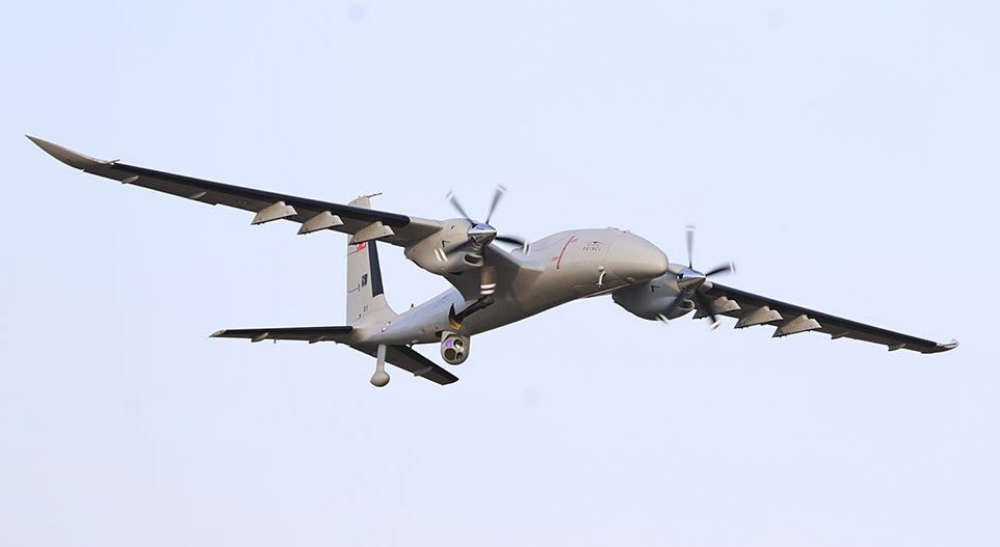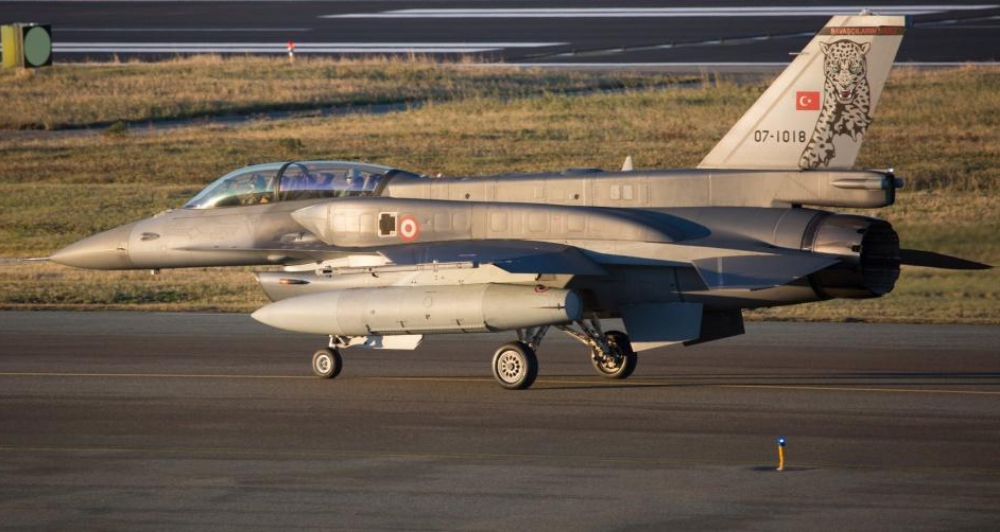Turkey is reversing the loyal wingman concept to protect its newly launched Akinci drones – regarded as one of the most advanced unmanned combat aerial vehicles (UCAVs). Their inclusion is expected to lead the Turkish air force to a brand new stage in its air-to-air and air-to-land warfare doctrines.
With a service ceiling of 40,000 feet and 24 hours of endurance, the new drone will be immune to close-range air defense systems. They will also have an operational radius of 600 kilometers (373 miles).
The Akinci will have a maximum takeoff weight of 4.5 tons and a payload capacity of 1,350 kilograms — divided between 900 kilograms external capacity and 450 kilograms internal capacity. It will be powered by two Ukrainian Ivchenko-Progress AI-450C turboprop engines rated 550 horsepower.
Turkey has so far imported 12 such engines from Ukraine, its main partner in the field of drone technology. Six units are slated for delivery to the Turkish Air Force (TAF) by the end of 2021.
The Akinci UCAV first made news after breaking a Turkish aviation altitude record flying for 25 hours and 46 minutes at 38,000 feet while carrying a payload of 1,360 kilograms over a distance of 7,500 km.
There is a need to protect the highly prized drones. According to experts, the Akinci’s arrival will lead the Turkish air force to modernize its aerial warfare rules. A new idea is reportedly under consideration that envisions F-16 fighter jets, armed with air-to-air missiles providing cover to Akinci drones, as they fly towards their targets.
The Akinci drone will boost the Turkish air force, presenting a new alternative for long-range missions in low-intensity conflict environments and thus relieving the burden of the F-16s, experts note.
Turkey’s F-16 Warplanes
Turkey is also looking for advanced fighters to replace its aging F-16 fleet. This assumes urgency given its rivals are bolstering their aerial capabilities rapidly. The US is currently upgrading most of Greece’s F-16s to the Viper configuration, which will make them the most advanced F-16s in Europe.
Additionally, Athens has ordered a small fleet of 4.5-generation French-built Rafale fighters and is also likely to acquire F-35As in the not-too-distant future. Egypt has also acquired Rafales and has reportedly begun taking delivery of 4.5-generation Su-35s from Russia.
Ankara-based BlueMelange, an independent research group, was recently quoted by Forbes as saying there are around 236 Turkish F-16s, consisting of Block 30, Block 40, Block 50, and Block 50+ variants, with descending combat-readiness due to their age and extreme combat-loaded sortie-flight records.
The highly advanced UCAVs are a matter of pride for Turkey and brought massive business to the country and Turkey does not want to take chance on the safety of these drones.
Source: Eurasian Times


